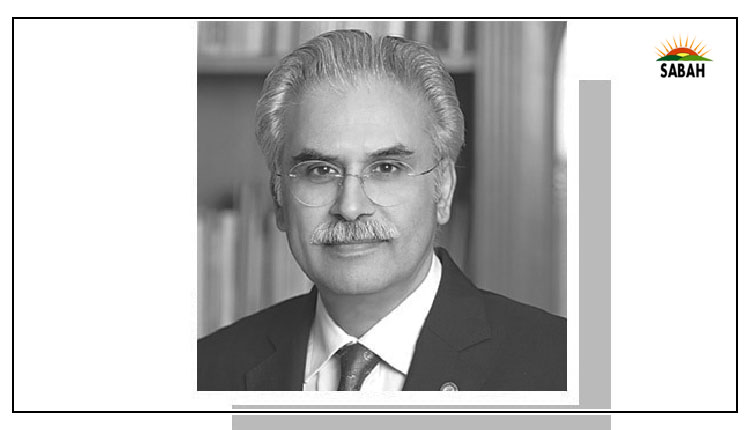Towards climate change…..Durdana Najam
The first step towards development and technical advancement was also the first step towards climate change. The discovery of fossil fuel accelerated changes in climate with the result that today it is one of the significant concerns and perhaps a heavily funded programme.
The Intergovernmental Panel on Climate Change was formed under the auspices of the UN in 1988 to gather scientists under one roof to investigate the depth and urgency of the issues. The United Nations Framework Convention on Climate Change was formed in 1992 to transform the knowledge and information of the IPPCC into action. The fundamental role of the UNFCCC was to structure a collaborative and cooperative approach towards mitigating and adapting to the changes in weather patterns worldwide. Some of the other important milestones in the history of climate change are:
Kyoto Protocol: Adopted in 1997, the treaty required industrialised countries to reduce their greenhouse gas emissions in accordance with agreed individual targets.
Paris Agreement: This international treaty adopted in 2015 was mandated to limit global warming to well below 2 degrees Celsius above pre-industrial levels while pursuing efforts to bring it to 1.5 degrees Celsius. The agreement sets out a framework for countries to submit their plan of action named Nationally Determined Contributions to reduce GHG emissions.
Copenhagen Accord: This political agreement was negotiated at the 15th Conference of Parties (COP15) to the UNFCCC in 2009. Besides setting the global warming acceptable limit to 2 degrees Celsius, the significant contribution of this accord was to provide funding to the less developed and developing countries to reduce greenhouse gas emissions.
Montreal Protocol: This international treaty aims to protect the ozone layer by phasing out the production and consumption of ozone-depleting substances. While not explicitly related to climate change, the Montreal Protocol, adopted in 1987, helped reduce hydrofluorocarbons (HFCs) greenhouse gases.
Doha Amendment: It was an amendment to the Kyoto Protocol to establish new emission targets for industrialised countries from 2013 to 2020. It was adopted in 2012.
According to the IPCC 2021 report, the Earths temperature has risen to 1.1 degrees Celsius above the pre-industrial level. The report warns that if timely actions are not taken, the temperature may exceed 1.5 degrees Celsius by 2030, causing in water and food shortages and violent conflicts resulting in migrations and displacements.
A startling declaration was made in 1988 at a conference attended by over 300 scientists and policymakers from 46 countries: Humanity is conducting an unintended, uncontrolled, globally pervasive experiment whose ultimate consequences could be second only to a global nuclear war.
Initially, the onus was laid on the developed countries because of their excessive use of fossil fuels that led to their technical advancement and economic development. The developing and underdeveloped countries were insulated from international obligations associated with climate change. The myth that developing countries have little or no share in polluting the atmosphere would soon become untenable, and the Paris Agreement ended the divide and made every government responsible for showing restraint in using fossil fuel and all those activities that add to climate-induced changes. Since then, several programmes, studies, frameworks and platforms have been created to combat one of the toughest challenges.
Hardly any country can say that it has not been affected by the adverse effects of the changing climate. The worst hit is the countries of South Asia. The Syrian civil war is partly attributed to the Middle Easts drought. Migration and displacement are two worst consequences of climate change that have led to increased poverty, health issues generated from epidemic and viral diseases, malnutrition in children and women and other human rights violations.
Climate changes are visible in frequent and intense heatwaves, droughts, floods, storms and wildfires. For instance, monsoon rains in Pakistan last year poured into areas that generally never experienced monsoon rains, such as Balochistan. The damages incurred from these changes destroy infrastructure, agriculture and ecosystems, displacing millions of people.
Since climate change is a human-induced malady, there will be no solution unless we humans change how we interact with the environment. The welfare of the planet and our health is a two-way street. We cannot pollute our environment and also lead a healthy life. We have to make a choice. A cleaner environment or a less polluted surrounding demands receding from the heavy usage of fossil fuel; a conscious effort to dispose of waste in a way that neither we clog oceans with plastics nor do we petrify the air with smog arising from burned stubble, broken engines, adulterated oil and inadvertent burning of waste products in the open; deforestation should be stopped through stringent laws; last but not the least is an urgent necessity to create awareness for a sustainable ecosystem.
Climate change shares space with other global policy priorities and goals, such as the SDGs. Not only do many of the 17 SDGs have a direct link to climate-related changes, SDG 13 explicitly addresses climate change: To take urgent action to combat climate change and its impact.
Climate change must be viewed together with the citys lifestyle for any transformative effect to occur. A substantial amount of greenhouse gas emissions stems from activities, behaviours and recourse demands in cities, putting the urban population, infrastructures and ecosystem in danger due to climate change impact. Against this backdrop, there is an urgent need to transform the living habits of city developers through changes in urban energy, transportation, water use, land use, consumption patterns and lifestyles.
The term carbon footprint is often used to describe the effort of an individual or corporation to reduce global warming. The concept denotes that every single act matters. Some of the simplest ways in which people and companies can make a difference at the individual level are: consume less, waste less; use energy more efficiently; choose efficient means of transportation; change eating habits; replace fossil fuel systems with alternative energy sources; become politically active.
These and many such efforts have been afoot for almost a century; however, the change has been slow and painstakingly difficult to achieve. On many occasions, countries like the US stepped back from its climate change commitments, while several countries in Europe made compromises on the usage of fossil fuel to keep their economy running due to the Ukraine war.
Courtesy The Express Tribune, June 8th, 2023.












